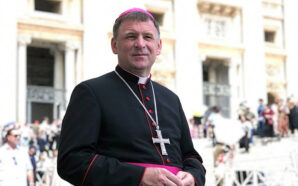The “Boys and Girls with Don Bosco” network, which is part of the Salesians of Don Bosco, celebrates its 40th anniversary this year, reflecting on four decades of dedication to improving the lives of vulnerable children in Santo Domingo. Since it’s founding in 1985, the organization, has focused on a holistic education model based on research, reception, socialization, and accompaniment, providing crucial support for thousands of children and young people.
“If everyone works together, it is possible to change the lives of the youngest for the better and create a better future for future generations, following the dream of Don Bosco,” the organization stated. Father Ysidro José Ramírez, Youth Ministry Delegate for the Antilles and Director of the Salesian network, emphasized: “Our task is not to replace school, but to recover the joy of childhood.” This approach has been central to the Salesians’ mission, aiming to offer children an environment where they can grow, learn, and thrive without the pressures of premature adulthood. “Seeing children stop being adults at the wrong time of their lives and enjoy their childhood is our greatest reward,” Father Ramírez said, according to ANS — “Agenzia iNfo Salesiana,” the communication agency of the Salesian congregation.
Challenges in the education system
While education is free and compulsory at the elementary level in the Dominican Republic, secondary education remains free but non-mandatory. Despite steady economic growth, the quality of education varies greatly depending on the type of school. Private and polytechnic schools tend to offer better facilities, which translates into higher student performance, while public schools often lack the resources needed for quality education. Gender inequality, low participation rates, and external organizational involvement are also persistent challenges.
The Human Rights Measurement Initiative highlights that the Dominican Republic is fulfilling only 75.5% of its educational potential based on income levels. While primary education meets 79.8% of expectations, secondary education lags at just 71.3%. This discrepancy reflects broader issues, such as insufficient teacher training and chronic shortages of qualified educators.
Historically, the Dominican government made substantial educational reforms in the 1970s, modernizing the curriculum at both primary and secondary levels to make schooling more applicable to students’ lives and the country’s needs. Vocational training was expanded, particularly in rural schools, and enrollment in schools grew by more than 20% between the 1960s and the 1980s. Secondary school enrollment saw even greater growth, increasing nearly fourfold. However, these gains were tempered by a lack of qualified teachers—roughly half of all teachers lacked the necessary academic background. The teaching profession’s low pay and status led to a chronic shortage of qualified educators, hindering further development of the education system.
Addressing poverty and building a sustainable future
Nearly half of youth under 18 in the Dominican Republic live in poverty, with limited access to food, clean water, and adequate housing, according to UNICEF. Despite the country’s economic growth, these youth face significant barriers to education, with only 30% completing primary school and 18% finishing secondary school on time. Many schools lack essential resources, and students often don’t have the necessary tools to succeed.
To bridge this gap, Salesian programs focus on providing both education and vocational training, ensuring youth are equipped with the skills necessary for stable employment. By focusing on holistic development, the Salesians are working to create long-lasting opportunities for these vulnerable children and young people. The Salesian “Boys and Girls with Don Bosco” initiative offers children and young people not only education, but also access to medical care, food, and an environment conducive to their integral development.
The Dominican Republic has a population of 10.59 million people of whom 44.3% are Catholic, and the remaining mostly Evangelical, Protestant and Adventist. A concordat with the Holy See makes Roman Catholicism the country’s official state religion and extends to the Catholic Church special privileges such as funding for expenses and visa exceptions not granted to other religious groups.
Reproduced with permission by La Croix International.








